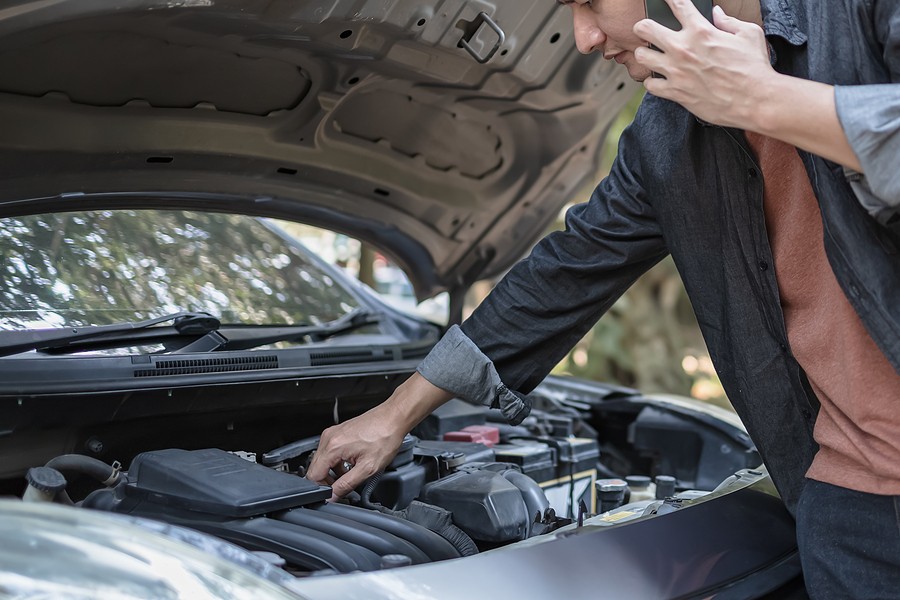The knocking or ticking sound coming from the engine can be a cause for concern for car owners. This sound, also known as the knocking rod sound, can be caused by a variety of factors and can indicate a serious problem if left unchecked. In this article, we will investigate the causes of knocking rod sound in engines and discuss possible solutions to fix the problem.
Causes of Knocking Rod Sound
-
Low-Quality Fuel
One of the most common causes of knocking rod sound is the use of low-quality fuel. Low-quality fuel can contain impurities and contaminants that can cause damage to the engine. When the engine is running on low-quality fuel, the impurities can cause the pistons and rods to produce a knocking or ticking sound.
-
Carbon Build-Up
Carbon build-up in the engine can also cause knocking rod sound. Carbon is a byproduct of combustion and can accumulate on the pistons and rods over time. As the carbon accumulates, it can cause the pistons and rods to produce a knocking or ticking sound when they move.
-
Worn Piston Rings
Worn piston rings can also cause knocking rod sound. Piston rings are responsible for sealing the combustion chamber and preventing oil from entering. When the rings are worn, they can no longer seal the chamber properly and oil can enter the combustion chamber. This can cause the pistons and rods to produce a knocking or ticking sound.
-
Worn Bearings
Worn bearings can also cause knocking rod sound. Bearings are responsible for reducing friction between moving parts and allowing them to move smoothly. When the bearings are worn, the moving parts can produce a knocking or ticking sound.
-
Overheating
Overheating can also cause knocking rod sound. When the engine is overheating, the metal parts can expand and produce a knocking or ticking sound.
Diagnosing the Problem
To diagnose the problem of knocking rod sound, a mechanic will typically perform a visual inspection of the engine and listen for the sound. They may also perform a compression test to check for worn piston rings and a borescope test to check for carbon build-up.
Solutions
-
Use High-Quality Fuel
To prevent knocking rod sound caused by low-quality fuel, it is important to use high-quality fuel. High-quality fuel is free of impurities and contaminants that can cause damage to the engine.
-
Cleaning Carbon Build-Up
Carbon build-up can be cleaned with a fuel additive that dissolves carbon. A mechanic may also use a borescope to inspect the engine and remove any carbon build-up manually.
-
Replacing Worn Piston Rings
Worn piston rings can be replaced by a mechanic. This is a labor-intensive process and can be costly, but it is necessary to fix the problem of knocking rod sound.
-
Replacing Worn Bearings
Worn bearings can be replaced by a mechanic. This process is also labor-intensive and can be costly, but it is necessary to fix the problem of knocking rod sound.
-
Fixing Overheating
Overheating can be caused by a variety of factors such as a malfunctioning radiator or a clogged cooling system. A mechanic can diagnose and fix the problem to prevent the engine from overheating.
FAQs
What are the signs of knocking rod sound in engines?
The signs of knocking rod sound in engines include a ticking or knocking noise coming from the engine, a decrease in fuel efficiency, and a loss of power.
How long can I drive my car with knocking rod sound?
It is not recommended to drive your car with knocking rod sound as it can cause damage to your engine and may lead to costly repairs. It is best to have a mechanic diagnose and fix the problem as soon as possible.
Can knocking rod sound be caused by a malfunctioning ignition system?
Yes, a malfunctioning ignition system can cause knocking rod sound in engines. A faulty spark plug, distributor cap, or rotor can create a knocking sound.
Can knocking rod sound damage my engine?
Yes, knocking rod sound can cause damage to your engine over time. It can lead to worn or damaged pistons, rods, and bearings.
How often should I have my engine checked for knocking rod sound?
It is recommended to have your engine checked for knocking rod sound during regular maintenance such as oil changes. If you hear a knocking or ticking noise, it's best to have your engine checked as soon as possible.
Can I fix knocking rod sound myself?
It is not recommended to fix knocking rod sound yourself, as it requires specialized tools and knowledge. It is best to have a professional mechanic diagnose and fix the problem.
Can using synthetic oil prevent knocking rod sound?
Using synthetic oil can help reduce the likelihood of knocking rod sound, as it is less prone to breaking down and can provide better lubrication to the engine.
Can knocking rod sound be caused by a worn timing belt?
Yes, a worn timing belt can cause knocking rod sound in engines. A timing belt is responsible for keeping the engine's crankshaft and camshaft in sync, and when it wears out, it can create a knocking sound.
Can a clogged air filter cause knocking rod sound?
A clogged air filter can reduce the amount of air flowing into the engine, which can cause a knocking sound. It's essential to change your air filter as recommended by the vehicle's manufacturer.
Conclusion
Knocking rod sound can be caused by a variety of factors such as low-quality fuel, carbon build-up, worn piston rings, worn bearings, and overheating.



